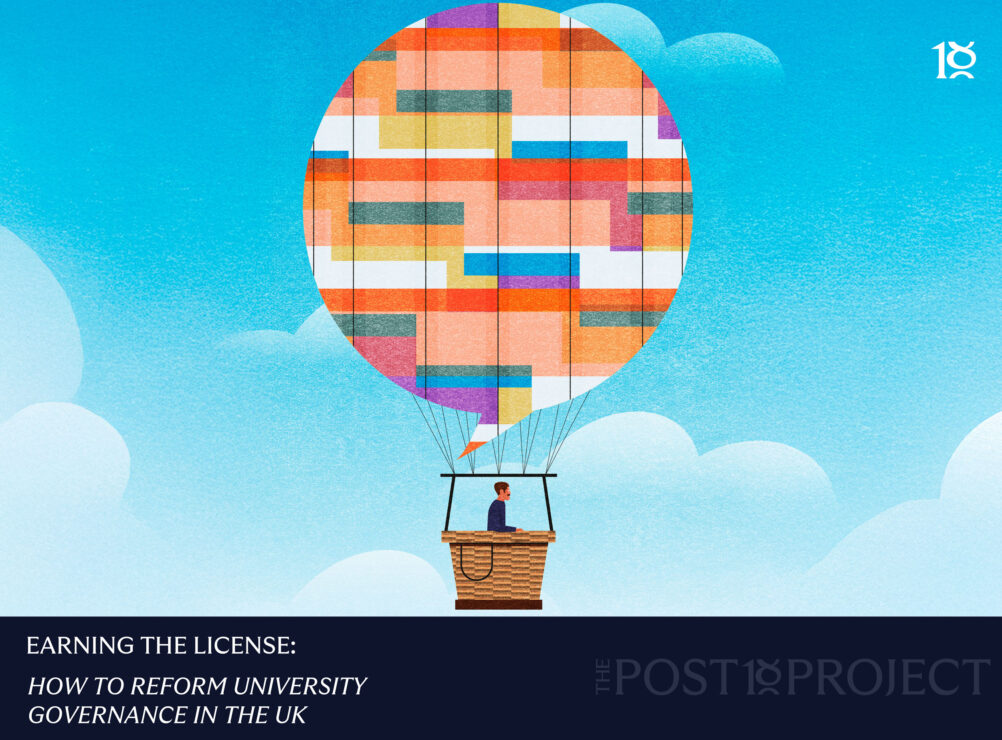Hastily convened task forces and working groups abound around the sector, coordinating responses to Covid-19.
I spend a good chunk of each week working directly with SUs, and one of the things that’s amazed me is the number of universities I’ve heard about that are completely shutting students and their SUs out of discussions and planning meetings on the response to the pandemic. Trust me when I say – if you exclude them, you are about to get this very wrong.
“Partners” when it suits, I guess. Ironically, the situation “suits” it right now.
The good news is that there’s plenty of the opposite – and here I’ve rounded up some of the discussions I’ve heard about surrounding the “student interest” that are worth reflecting on around the sector.
1. What’s the wifi password
Obviously the most common headline from late last week surrounds the rapid shifting from face to face teaching to online – DK has been keeping track with a whizzy map here. I should say that any university that has spent the last decade saying the adjustments involved to make several aspects of the teaching and learning experience accessible via use of tech were unreasonable/impossible should probably a) apologise to disabled students they’ve said this to and b) prepare to never go back.
That said, it’s probably also worth saying that any university hurling stuff online in a panic that has just assumed all of that will be accessible to all disabled students probably needs to sit in the corner and reflect before it piles a box full of insult onto a folder full of injury. Jisc has some handy stuff here.
2. It’s getting hot in here
Obviously the move from F2F teaching to online hides other decisions about what’s left on campus – some are effectively moving to “Christmas Day” coverage, others are basically still open bar the teaching. Either way, the thing we hear being worried about by SUs is that whilst this is the time of year when lecture theatres empty, it’s also the season for libraries to fill up. Even if exams and end of year assessments go “offline”, what’s the plan for the major study areas on campus?
3. Digital natives?
One thing I have picked up is several SU officers and staff in meetings discussing in detail the needs of staff delivering online – whilst blithely assuming that all students will have somewhere quiet to sit at home, a decent broadband connection, and a PC or Mac capable of running certain solutions. There’s a reason those computer rooms are still used, folks, and it’s not hard to guess that the students who may fall foul of some of the assumptions are likely to be ones already in high risk participation categories in the APP.
4. Draft them in
We were particularly amused by the idea floated by the boss of the NHS the other day that unqualified nursing students might be drafted in to help hospitals amid the outbreak. The offer to actually pay them is one thing – but if they miss out on clinical experience or teaching we’re assuming that someone will remember to give them a fee refund. Surely?
5. I wanna stay home
We know already that the Government has announced that future measures to control the spread of the disease could include stricter self-isolation arrangements, where if one household member falls ill, the entire household is asked to stay home for 14 days. For students who can’t or won’t fully “go home” yet, what’s not yet clear is how this type of self-isolation would affect those in halls (both university and private) and HMOs. Some liaison and communication here wouldn’t go amiss.
6. Fill in this form
We’re also picking up wide confusion about self-isolation and academic regs. These are issues that are a sort of extreme stress test of many of the things OIA is consulting on right now in its mitigating circumstances consultation, but in any event the student officers that have been begging for the “needle of trust” to shift a bit are going to find the sudden abandonment of previous justifications a little galling (especially now the prospect of 111 doling out doctor’s notes – promised early last week – has now been abandoned).
Crucially, what’s not yet clear to many is whether what we might call “consequential” self-isolation – a housemate or a family member keeping otherwise healthy you at home – counts as a justification for physical absence, or would count as one for a “take home exam” virtual absence. Quick clarity is needed here too.
7. Exemptions apply
Clearly universities can do all sorts of things like automatically progressing Y1 undergrads and relaxing mit circs regs, but there’s a real danger that external accreditation bodies or formal placement providers have different policies. We hear the various bodies involved have been in many cases painfully slow to offer clarity – and it sounds like UUK should be using its good offices to apply some pressure here before mass confusion amongst students sets in.
8. Trust Boris, trust the experts
We hear that some students – especially from particular countries – may be getting problematic messages about the UK Government’s handling of the virus. Some SUs we’re talking to are doing clever things with international offices and comms teams about messaging – and keeping that messaging regularly updated as FAQs off the back of questions in. Some are trying to, but getting nowhere.
9. More than teaching
And whilst we’ve seen lots of discussion about teaching – there’s not been so much on other types of services that a university in theory offers. There are major “behind the scenes” issues – marking, exam boards, etc that students will want clarification on, especially in strike hit institutions where much of this has already felt up in the air.
But probably of bigger concern to students are support services like mental health, counselling and careers. In theory universities should attempt to make up for anything not delivered that has been promised. Teaching and assessment may be the obvious priority but (for example) final year students looking for CV support, or students with counselling appointments could all be affected. We’re hearing that this has been factored well in some institutions and effectively ignored in others.
We’re also hearing that some have thought about all the independent and group study that is expected that students need and use facilities for – and many (despite never stopping on about it when contact hours or VFM debates come up) appear to have forgotten.
10. I want me money back
Finally, we do have to think about compensation. In some spots on a miserable venn diagram there are international students who’ve paid £20k a year in fees alone for a number of years of lost teaching due to strikes who now will be fiddling with webcams. Indeed, there are some students who may not be able to complete this year at all because so much teaching has gone missing.
Obviously, time is running out for universities to try to make up for things that students won’t get – and whilst the “force majeure” clauses in contracts might well be tight enough to allow a university to refuse compensation, the long term resentment already felt by indebted graduates will be much worse for a group of students who really haven’t had what they were promised – but will still spend their lives paying for it.
There’s plenty more – NUS raised the desperate student job income and student hardship funds issue last week, for example – but generally I can’t stress enough that those of you with internal Cobra-style committees in play in universities really do need some SU officers and staff in the room – because they’ll spot things you never will, identify angles you need to consider with care and rapidity, and help enormously with the (two-way) communication effort. And anyway, when there’s a debate about what’s in “the student interest”, shouldn’t we involve students in that deliberation?













